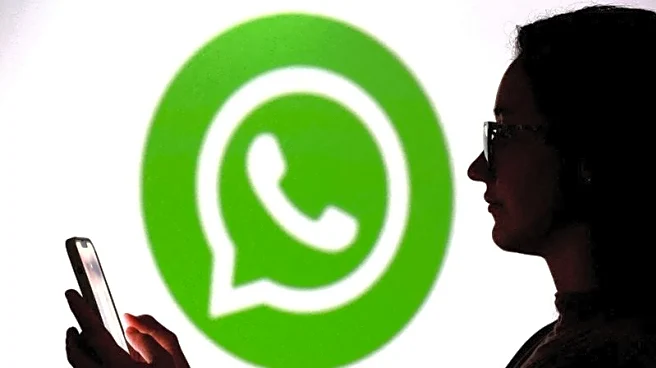Rapid Read • 8 min read
On August 24, 2025, Russia and Ukraine engaged in a prisoner exchange, releasing 146 prisoners of war from each side. This exchange is part of ongoing efforts between the two nations, which have seen hundreds of POWs released this year. The exchanges are the result of negotiations held in Istanbul between May and July, marking one of the few areas of cooperation since Russia's offensive began in 2022. Among those released were two Ukrainian journalists, Dmytro Khyliuk and Mark Kaliush, who had been detained for their journalistic work. Additionally, former Kherson mayor Volodymyr Mykolayenko was freed after spending over three years in captivity. The exchange also included eight Russian citizens from the Kursk region, previously detained by Ukraine.
AD
The prisoner exchange highlights a rare instance of cooperation between Russia and Ukraine amidst ongoing conflict. The release of journalists underscores the challenges faced by media workers in conflict zones, with press freedom groups advocating for their protection. The exchange also reflects the humanitarian aspect of the conflict, as individuals detained for extended periods are returned to their home countries. This development may influence public perception and diplomatic relations, potentially easing tensions and fostering dialogue. However, the continued detention of other media workers and civilians remains a concern, with calls for their release and accountability for their treatment.
Future exchanges may continue as both countries seek to resolve humanitarian issues amidst the conflict. The release of journalists and civilians could prompt further advocacy from international organizations, pressuring both governments to address human rights concerns. Diplomatic efforts may focus on expanding areas of cooperation, potentially leading to broader negotiations. The situation remains fluid, with potential reactions from political leaders and civil society groups influencing the trajectory of the conflict and humanitarian efforts.
The exchange raises ethical questions about the treatment of detainees and the role of journalism in conflict zones. The targeting of media workers for their reporting highlights the risks faced by journalists and the importance of safeguarding press freedom. The involvement of international organizations in advocating for detainee rights may lead to increased scrutiny of both countries' human rights records. Long-term implications could include shifts in media coverage and public awareness of the conflict, influencing international policy and humanitarian aid.
AD
More Stories You Might Enjoy













